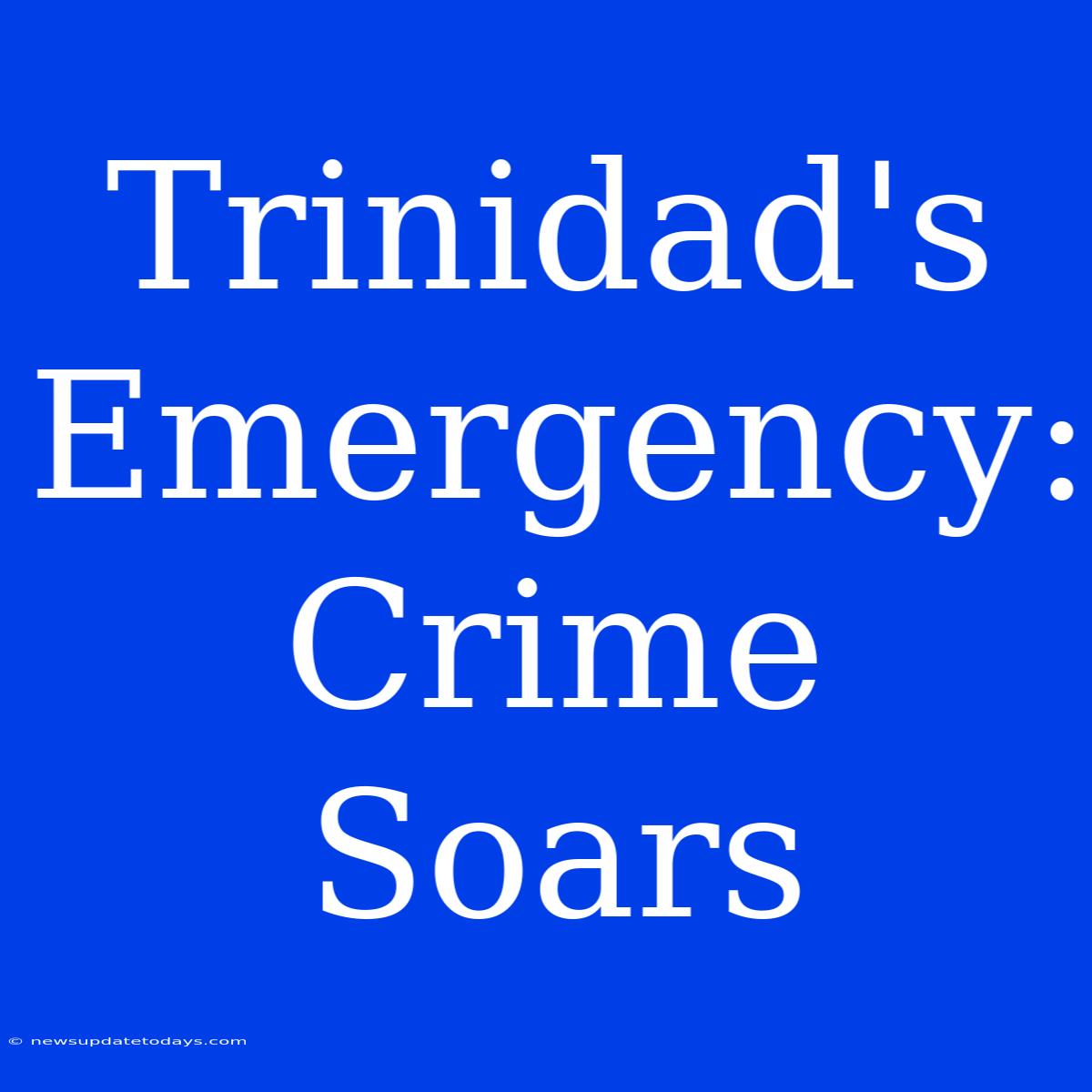Trinidad's Emergency: Crime Soars – A Nation Grapples with Violence
Trinidad and Tobago is facing a crisis. Crime, particularly violent crime, is spiraling out of control, leaving citizens terrified and demanding urgent action from the government. This isn't just a statistic; it's a lived reality impacting every facet of Trinidadian life.
The Grim Reality: A Surge in Violent Crime
The numbers paint a stark picture. Homicides are at record highs, surpassing previous years' totals with alarming speed. Beyond the headline-grabbing murders, there's a pervasive sense of insecurity fuelled by a constant barrage of reports on robberies, kidnappings, and other violent crimes. This isn't simply a problem confined to specific areas; the violence is spreading, reaching into communities previously considered safe.
Understanding the Root Causes: A Complex Issue
This escalating crime wave isn't a simple problem with a simple solution. Several interwoven factors contribute to the crisis:
- Socioeconomic Disparities: The vast gap between the rich and the poor creates fertile ground for resentment and desperation, driving individuals towards criminal activity. Lack of opportunities and economic hardship are significant contributing factors.
- Gang Violence: Powerful and well-organized gangs are heavily involved in the drug trade, fueling much of the violence. These groups control territories and engage in brutal turf wars, leaving innocent civilians caught in the crossfire.
- Weak Law Enforcement: While law enforcement agencies are working hard, they are often overwhelmed by the sheer volume of crime and lack the resources to effectively combat the problem. Issues such as corruption and a lack of manpower further exacerbate the situation.
- Access to Firearms: The easy availability of illegal firearms makes it easier for criminals to commit violent acts, escalating the severity of crimes.
- Lack of Community Support: A breakdown in community structures and a lack of support systems can leave individuals feeling isolated and vulnerable, making them more susceptible to crime.
The Human Cost: Beyond the Statistics
The statistics are chilling, but they don't capture the human cost of this crisis. Families are torn apart by violence, communities live in fear, and the overall sense of safety and security has dramatically diminished. The psychological impact on the population cannot be overstated. The constant threat of violence affects mental health, hinders economic progress, and undermines the very fabric of society.
What Needs to Be Done? A Call for Comprehensive Action
Addressing this crisis requires a multi-pronged approach involving:
- Strengthening Law Enforcement: This includes increased funding, improved training, better equipment, and a concerted effort to tackle corruption within the police force.
- Addressing Socioeconomic Issues: Investing in education, job creation, and community development programs is crucial to address the root causes of crime. Providing opportunities for young people is essential to prevent them from falling into criminal activity.
- Gun Control Measures: Stricter gun control laws and more effective enforcement are vital to reduce the availability of firearms.
- Community Engagement: Rebuilding trust between law enforcement and communities is vital. Community-based initiatives and programs aimed at crime prevention and rehabilitation are essential.
- Improved Mental Health Support: Providing access to mental health services for victims of crime and those affected by the violence is crucial.
Trinidad and Tobago faces a critical juncture. Only through comprehensive, long-term strategies addressing the underlying issues and strengthening community engagement can the nation begin to overcome this escalating crisis and restore a sense of safety and security for all its citizens. The time for decisive action is now.

